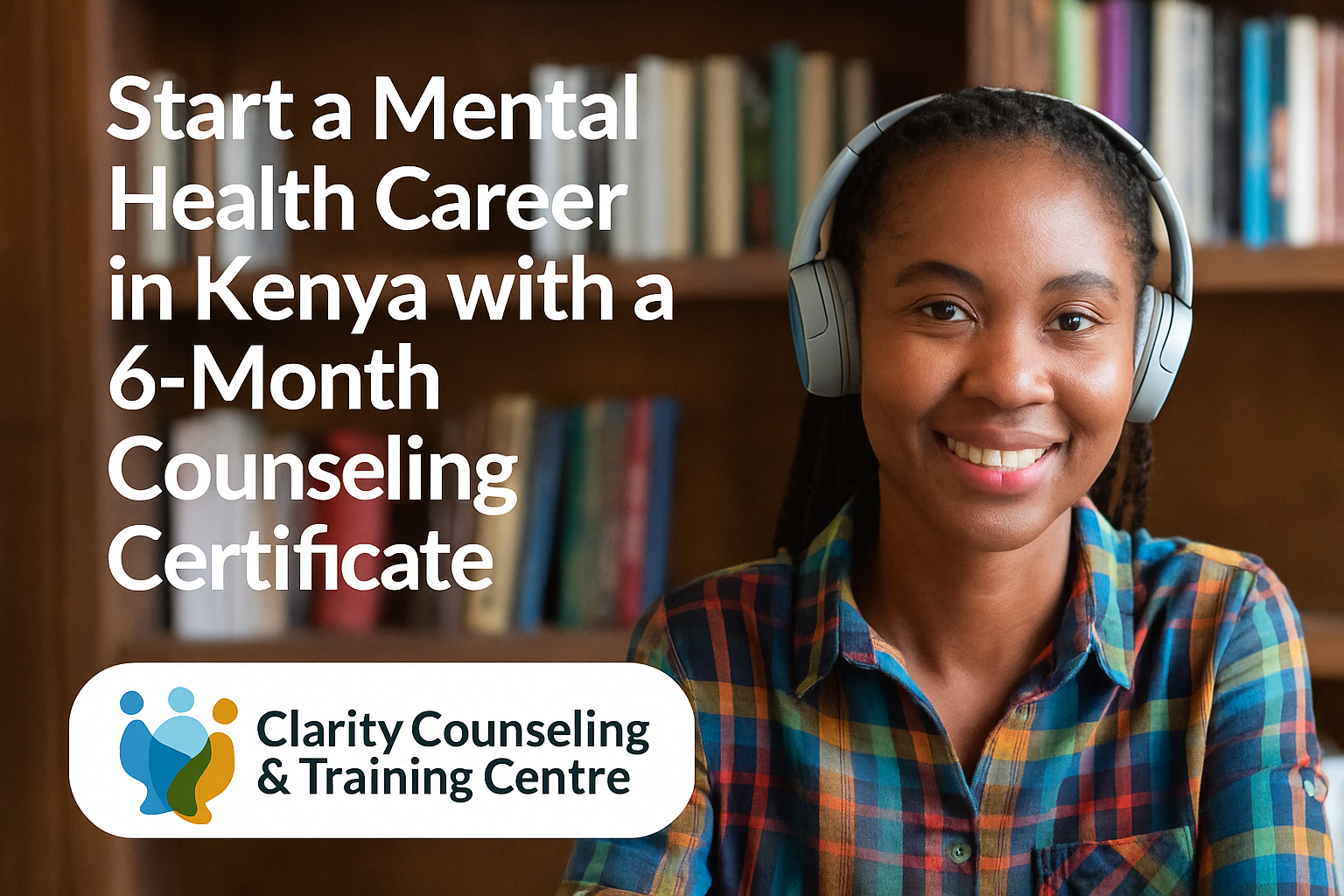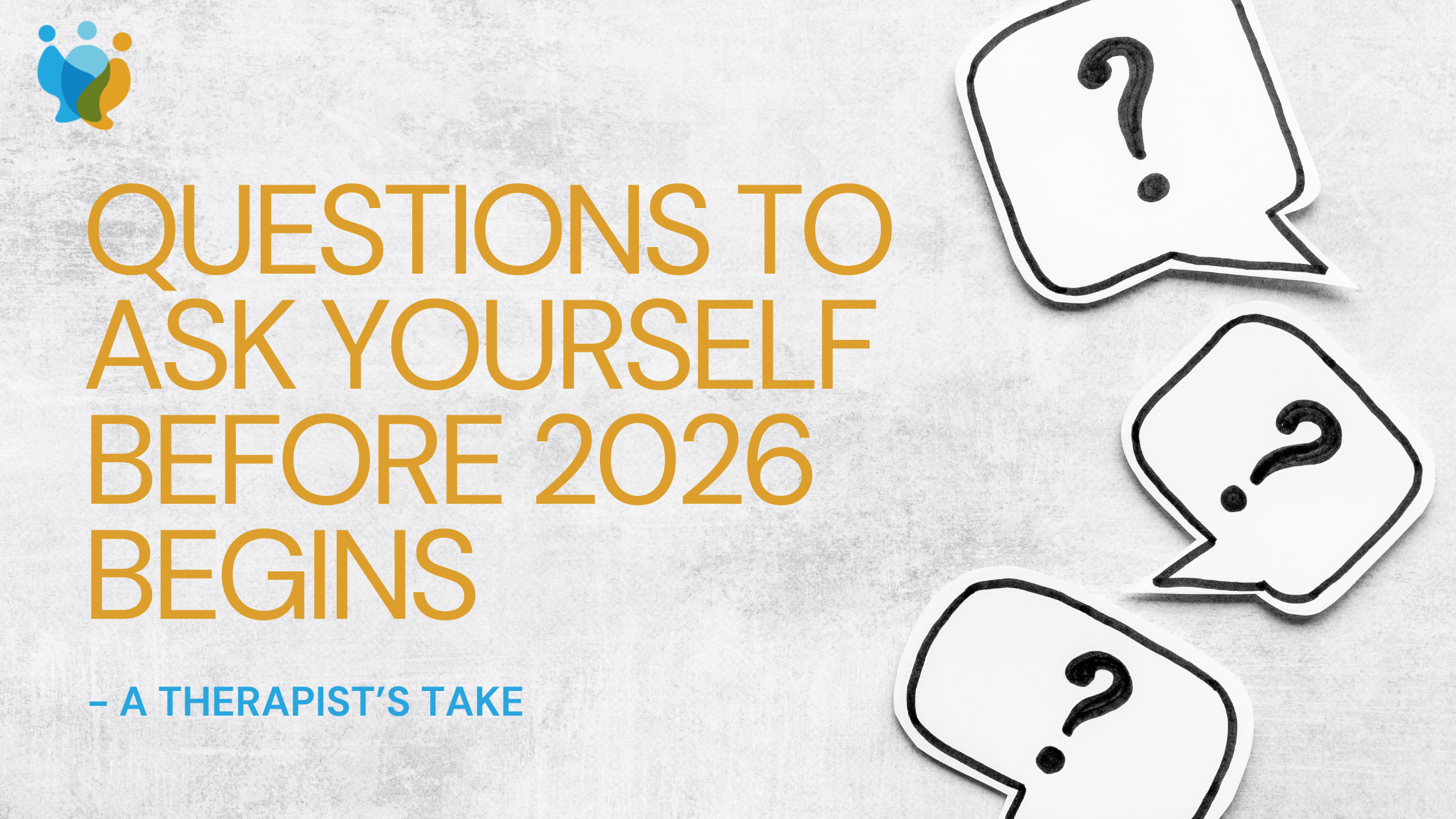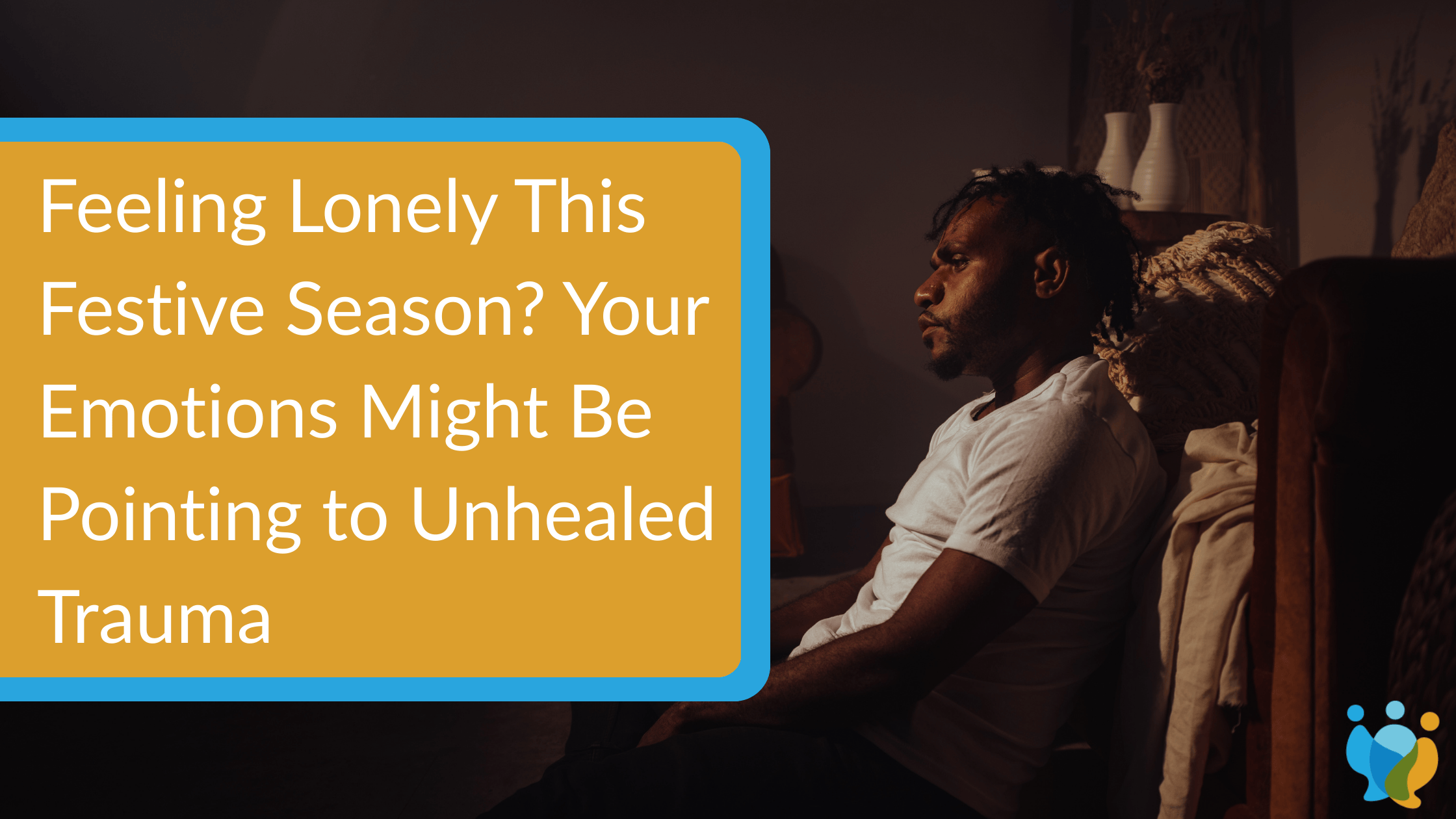The Ultimate Guide to Finding the Best Therapist in Kenya: Your Path to Mental Wellness

The Ultimate Guide to Finding the Best Therapist in Kenya: Your Path to Mental Wellness
Are you searching for the best therapist in Kenya to guide you on your journey to mental wellness? Look no further! In this comprehensive guide, we will provide you with everything you need to know to find the perfect therapist who can help you navigate life’s challenges and improve your mental health.
Finding the right therapist is essential for your well-being, and we understand that the process can sometimes feel overwhelming. That’s why we have compiled a step-by-step approach to make it easier for you. From understanding different therapy approaches to knowing what questions to ask during your initial consultation, we have got you covered.
Our guide will also provide insights into the various factors you should consider when choosing a therapist, such as their qualifications, experience, and specialization. You deserve someone who understands your unique needs and can create a safe and supportive environment for your healing journey.
Investing in your mental wellness is one of the best decisions you can make, and we are here to support you every step of the way. Get ready to embark on a path towards better mental health and find the best therapist in Kenya to guide you on this transformative journey.
The Importance of Mental Wellness in Kenya
Mental wellness is a crucial aspect of our overall well-being. It encompasses our emotional, psychological, and social health, and it plays a significant role in shaping our daily lives, relationships, and decision-making processes. When we prioritize our mental wellness, we are better equipped to handle the challenges and stresses that come our way, maintain healthy coping mechanisms, and live a more fulfilling and enriched life.
Maintaining good mental health is not just about addressing mental health issues or disorders; it’s about cultivating a sense of balance, resilience, and self-awareness. It involves taking proactive steps to nurture our emotional and psychological well-being, such as practicing self-care, developing healthy habits, and seeking support when needed. By prioritizing our mental wellness, we can improve our quality of life, enhance our relationships, and achieve a greater sense of purpose and fulfillment.
In today’s fast-paced world, the importance of mental wellness cannot be overstated. Stress, anxiety, depression, and other mental health challenges are on the rise, and it’s crucial that we address these issues with the same level of importance as physical health. Seeking professional help from a qualified therapist can be a transformative step in this journey, as they can provide the guidance, support, and tools necessary to navigate the complexities of our emotional and psychological well-being.
Understanding the Role of a Therapist in Kenya
A therapist is a trained mental health professional who specializes in helping individuals, couples, or families to improve their mental and emotional well-being. Therapists are equipped with the knowledge, skills, and expertise to help clients identify and address the root causes of their emotional and psychological challenges, develop coping strategies, and achieve personal growth and transformation.
The role of a therapist is multifaceted and can vary depending on the specific approach and specialization of the professional. However, at the core of their work, therapists aim to create a safe, non-judgmental, and supportive environment where clients can openly explore their thoughts, feelings, and experiences. Through active listening, empathy, and evidence-based techniques, therapists help clients gain a deeper understanding of themselves, identify patterns of behavior, and develop the tools necessary to overcome obstacles and achieve their desired goals.
In addition to providing therapeutic interventions, therapists also play a crucial role in advocating for their clients’ mental health and well-being. They may collaborate with other healthcare professionals, such as psychiatrists or physicians, to ensure that their clients receive a comprehensive and integrated approach to their care. Therapists also play a vital role in promoting mental health awareness and reducing the stigma associated with seeking professional help, which is particularly important in communities where mental health is often overlooked or misunderstood.
Different Types of Therapy in Kenya
When it comes to finding the right therapist in Kenyq, it’s essential to understand the various types of therapy available. Each approach has its own unique focus, techniques, and theoretical foundations, and the choice of therapy should be tailored to the individual’s specific needs and goals.
One of the most well-known and widely practiced forms of therapy is cognitive-behavioral therapy (CBT). CBT focuses on identifying and modifying negative thought patterns and behaviors that contribute to emotional distress. By helping clients develop a more balanced and realistic perspective, CBT can be highly effective in addressing a range of mental health issues, such as anxiety, depression, and post-traumatic stress disorder.
Another popular approach is psychodynamic therapy, which explores the unconscious thoughts, emotions, and experiences that shape an individual’s personality and behavior. This type of therapy often involves exploring childhood experiences and their impact on current relationships and decision-making processes. Psychodynamic therapy can be particularly helpful for individuals seeking a deeper understanding of their inner world and the underlying factors that influence their thoughts and actions.
Family therapy is another important modality that focuses on the dynamics and interactions within a family system. This approach recognizes that individual issues are often interconnected with the family’s overall functioning and that addressing these systemic patterns can lead to significant and lasting change. Family therapists work with families to improve communication, resolve conflicts, and develop more constructive ways of supporting one another.
Factors to Consider when Choosing a Therapist in Kenya
When searching for the best therapist in Kenya, there are several key factors to consider to ensure that you find the right fit for your needs. By taking the time to carefully evaluate these factors, you can increase the likelihood of a successful and transformative therapeutic experience.
One of the most important factors to consider is the therapist’s qualifications and credentials. Look for a therapist who has a relevant degree, such as a Master’s or Doctorate in Counseling Psychology, and/or a Diploma in Counseling Psychology from a credible tertiary institution, and is licensed or registered to practice in Kenya. Additionally, it’s beneficial to choose a therapist who has specialized training or experience in the specific area you are seeking help with, such as trauma, addiction, or relationship issues.
Another crucial factor is the therapist’s approach and therapeutic orientation. Different therapists may use various techniques and modalities, and it’s important to find someone whose approach aligns with your personal preferences and goals. Some therapists may specialize in cognitive-behavioral therapy, while others may focus on psychodynamic or humanistic approaches. Take the time to research and understand the different types of therapy to determine which one resonates with you the most.
The therapist’s experience and expertise are also essential considerations. Look for a therapist who has a proven track record of successfully helping clients with similar concerns to your own. Consider the length of their practice, the number of clients they have worked with, and any specialized training or certifications they have acquired. This information can help you gauge the therapist’s level of competence and the likelihood of a positive outcome.
Researching and Finding Therapist in Kenya
When it comes to finding the best therapist in Kenya, the process may seem daunting at first, but with the right resources and strategies, you can navigate the landscape and identify the right professional for your needs.
One of the best places to start your search is by asking for referrals from trusted sources, such as your primary care physician, local mental health organizations, or even friends and family members who have had positive experiences with a therapist. These personal recommendations can be invaluable, as they provide insight into the therapist’s approach, communication style, and overall effectiveness.
Another useful resource is online directories and databases that specialize in connecting individuals with mental health professionals. Platforms like the Kenya Psychological Association (KPA) or the Kenya Counseling and Psychological Association (KCPA) can be excellent starting points, as they often provide detailed profiles of registered therapists, including their areas of specialization, qualifications, and contact information.
In addition to online resources, you can also explore local directories, community centers, or mental health clinics in your area to identify potential therapists. Many of these organizations maintain lists of affiliated professionals or can provide referrals based on your specific needs and preferences.
Checking Credentials and Qualifications
When selecting a therapist in Kenya, it’s crucial to thoroughly vet their credentials and qualifications to ensure that you are receiving the highest quality of care. This step is essential in ensuring that the therapist you choose has the necessary education, training, and experience to provide effective and ethical therapeutic services.
Begin by verifying the therapist’s educational background. Look for individuals who have earned a relevant degree, such as a Master’s or Doctorate in Counseling Psychology and/or a Diploma in Counseling Psychology, or a related field. Additionally, ensure that the therapist is licensed or registered to practice in Kenya, as this indicates that they have met the necessary standards and requirements set by the appropriate regulatory bodies.
It’s also important to examine the therapist’s specific areas of expertise and specialization. Many therapists may have additional certifications or training in particular modalities, such as cognitive-behavioral therapy, family therapy, or trauma-informed care. Choosing a therapist with specialized knowledge and experience in the areas you are seeking help with can greatly enhance the effectiveness of the therapeutic process.
Furthermore, consider the therapist’s ongoing professional development and continuing education efforts. Reputable therapists will typically engage in regular training, workshops, and supervision to stay up-to-date with the latest research, techniques, and best practices in the field of mental health. This commitment to professional growth and development can be a strong indicator of the therapist’s dedication to providing high-quality care.
Reading Reviews and Testimonials
In addition to verifying the credentials and qualifications of a potential therapist, it’s also important to gather information about their reputation and the experiences of their past clients. Reading reviews and testimonials can provide valuable insights into the therapist’s communication style, empathy, and overall effectiveness in helping individuals achieve their goals.
Online platforms, such as the therapist’s website or professional directories, often feature client testimonials and ratings that can give you a sense of the therapist’s strengths, areas of expertise, and the impact they have had on the lives of their clients. Pay attention to the specific details and personal stories shared in these reviews, as they can offer a more nuanced understanding of the therapist’s approach and the quality of care they provide.
In addition to online reviews, you can also reach out to your personal or professional network to inquire about any recommendations or experiences they may have had with the therapist you are considering. Word-of-mouth referrals from trusted sources can be particularly valuable, as they provide first-hand insights into the therapist’s interpersonal skills, responsiveness, and the overall therapeutic experience.
When reviewing testimonials and client feedback, look for consistent themes and patterns that align with your own needs and preferences. Pay attention to factors such as the therapist’s ability to listen, their empathy and understanding, the effectiveness of their interventions, and the level of trust and comfort the clients felt during the therapeutic process.
Initial Consultation and Assessment Process
One of the most crucial steps in finding the right therapist is the initial consultation and assessment process. This first meeting is an opportunity for you to get to know the therapist, understand their approach, and determine if they are the right fit for your specific needs and goals.
During the initial consultation, the therapist will typically begin by gathering information about your current concerns, your mental health history, and any relevant personal or life circumstances that may be contributing to your challenges. They may also ask about your expectations and desired outcomes for therapy, as well as your preferences in terms of communication style and therapeutic approach.
It’s important to use this time to ask questions and gain a clear understanding of the therapist’s qualifications, experience, and therapeutic philosophy. Some key questions you may want to consider asking include:
- What is your educational and professional background?
- What is your specific area of expertise or specialization?
- Can you describe your approach to therapy and the techniques you typically use?
- How do you measure the progress and effectiveness of therapy?
- What is your availability and scheduling flexibility?
- What are your fees, and do you accept any insurance or payment plans?
The initial consultation is also an opportunity for you to assess the therapist’s interpersonal skills and whether you feel comfortable opening up to them. Pay attention to factors such as their active listening, empathy, and the overall rapport and connection you feel during the session. A good therapist-client relationship, built on trust and mutual understanding, is essential for the success of the therapeutic process.
Cost and Insurance Coverage of a Therapist in Kenya
The cost of therapy is an important consideration when searching for the best therapist in Kenya. Mental health services can vary significantly in price, and it’s essential to understand the financial implications before committing to a particular therapist or treatment plan.
One of the first steps in understanding the cost of therapy is to determine if your health insurance plan provides coverage for mental health services. Many insurance providers in Kenya now offer some level of coverage for outpatient therapy, and understanding the details of your specific plan can help you budget and plan for the cost of treatment.
If your insurance plan does not cover therapy or you do not have access to health insurance, there are still options available to make mental health services more affordable. Some therapists offer sliding-scale fees, where the cost is adjusted based on your financial situation and ability to pay. Additionally, there may be community-based organizations or clinics that provide low-cost or free mental health services to individuals in need.
When discussing the cost of therapy with a potential therapist, be sure to ask about their fee structure, any additional charges (such as for missed appointments or administrative fees), and whether they offer payment plans or other financial assistance options. This information will help you make an informed decision and ensure that you can access the care you need without undue financial burden.
Making the Final Decision and Starting with Your Therapist in Kenya
After carefully considering all the factors and completing the initial consultation process, it’s time to make the final decision about which therapist is the best fit for your mental health needs. This decision should be based on a comprehensive evaluation of the therapist’s qualifications, approach, and the overall connection and rapport you feel during the initial meeting.
As you weigh your options, it’s important to trust your intuition and go with the therapist who you feel most comfortable and confident in. A successful therapeutic relationship is built on trust, open communication, and a shared understanding of your goals and the path forward. If you feel that a particular therapist is not the right fit, don’t hesitate to continue your search until you find someone who truly resonates with you.
Once you’ve made your decision, the next step is to schedule your first official therapy session. This can be an exciting and sometimes daunting experience, but it’s important to remember that taking this step is a courageous act of self-care and a commitment to your mental wellness. The therapist will guide you through the initial session, helping you to feel comfortable, establish clear goals, and lay the foundation for a productive and transformative therapeutic journey.
As you embark on this new chapter, be patient and compassionate with yourself. Therapy is a process, and it may take time to see the full benefits of the work you are doing. Trust the process, be open and honest with your therapist, and embrace the opportunity to grow, heal, and unlock your full potential. With the right therapist by your side, you can navigate the challenges of life with greater clarity, resilience, and a renewed sense of purpose.
At Clarity Counseling Centre, we believe in supporting our clients in their search for the right therapist for them according to their needs and preferences. Contact Us today, and let us guide you on how to arrive at the right professional to work with.










